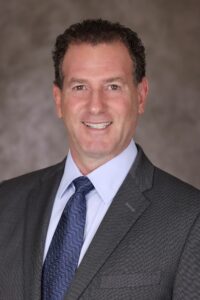BLOG
 The firm’s latest Miami Herald “Real Estate Counselor” column authored by Gary M. Mars appears in today’s “Neighbors” section under the headline “Southwest Florida Community Associations Appear to Fall Victim to Massive Fraud.” The article focuses on what appears to be one of the largest cases of fraud and embezzlement ever committed against Florida community associations that is now unfolding in Southwest Florida. Gary’s article reads:
The firm’s latest Miami Herald “Real Estate Counselor” column authored by Gary M. Mars appears in today’s “Neighbors” section under the headline “Southwest Florida Community Associations Appear to Fall Victim to Massive Fraud.” The article focuses on what appears to be one of the largest cases of fraud and embezzlement ever committed against Florida community associations that is now unfolding in Southwest Florida. Gary’s article reads:
. . . Association directors, and also to some extent the property managers they retain, have control over communities’ purse strings, and for some enclaves we are talking about multiple millions of dollars per year. Such amounts under the control of so few have made condominiums and HOAs a favorite target of crooks and fraudsters for generations. Swindlers have embezzled millions of dollars from communities, before getting caught and facing the music in the vast majority of cases.
An excellent Naples Daily News/The News-Press investigation that remains ongoing appears to reveal sadly yet another example of the type of rampant fraud that can be inflicted on communities.
The case stems from an initial lawsuit filed by the Compass Point South at Windstar condominium association in Naples last April against American Property Management Services, owner Orlando Miserandino Ortiz, and his wife and co-owner Lina Munoz Posada. It alleges that the association and its board members lost access to their Wells Fargo Bank accounts because APMS did not add their names to the accounts, effectively locking them out.
The case was expanded in January with a new lawsuit listing 24 additional plaintiffs and new allegations, including that there is good cause to believe that the owners have left the U.S. and have been residing in Colombia for more than a year. Both complaints allege Miserandino placed funds in accounts that only he could access, preventing the associations from keeping tabs on or accessing their money. According to interviews by the journalists with the association directors, APMS took sole control of their accounts by telling them to sign signature cards but then never submitting them to the bank.
As of the most recent hearing, the associations can now finally see the amounts left in the bank accounts, but they still cannot access the funds because they remain frozen under court order. The newspapers report that out of 90 HOA bank accounts involved in the alleged fraud, 23 have been closed, and 67 had balances ranging from $180K to zero. The closed accounts appear to be cases in which communities’ entire savings were illicitly removed, and the association directors indicate more than $8 million has been taken.
APMS has denied the allegations, and it claims in court filings that the associations were aware and approved of its actions.
The newspapers also report that APMS received $245K in COVID-19 relief funds, and Ortiz created an LLC that purchased a private jet last year. They also chronicle how last June the company received only a $1,000 fine, which it then never paid, and was allowed to keep its Florida property management license as a result of an investigation by the state’s Department of Business and Professional Regulation over a 2020 embezzlement complaint.
Regrettably for the associations in Southwest Florida that are experiencing this devastating financial disaster, it appears they and their boards of directors were duped and defrauded by individuals posing as experts who gained their trust over the course of years. As state-licensed agents of community associations, property managers owe a duty that is codified into Florida law to steward associations’ funds for the benefit of their clients, so association directors often grow to trust their managers wholeheartedly and let them handle practically everything. . .
Gary concludes his article by noting that this case apparently reminds us that such notions and business practices are naïve and extremely ill-advised. Association directors as well as the professionals who serve and guide them owe a duty to never let their guard down when it comes to safeguarding communities’ finances. He notes that the next column will focus on the precautions and policies that associations should put into place to avoid becoming a victim, including those that may have helped these unfortunate communities in Southwest Florida.
Our firm salutes Gary for sharing his insights into the takeaways from this case with the readers of the Miami Herald. Click here to read the complete article in the newspaper’s website.

